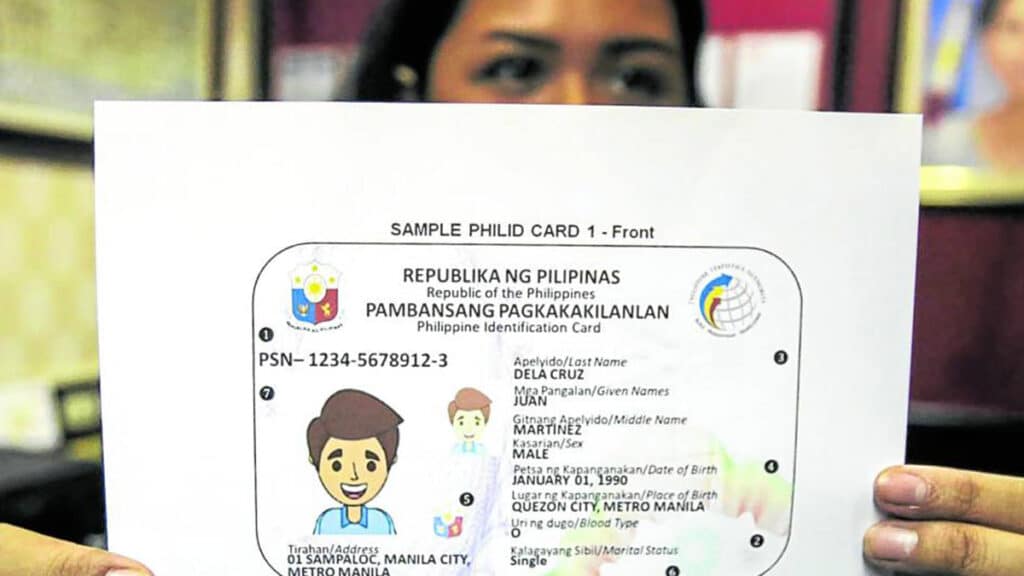
FILE PHOTO: A congressional worker shows a sample of the PhilSys ID presented to the House of Representatives when the Philippine Statistics Authority was seeking funding in October 2022. INQUIRER FILES
The Philippine Statistics Authority (PSA) on Friday assured the public of continuous issuance of national IDs despite the termination of contract with the supplier.
“The PSA is taking necessary measures for the continuous issuance of national IDs. We affirm our unwavering commitment to delivering a reliable and secure national ID system, ensuring that every registered person will receive their National ID,” PSA said in a statement.
READ: BSP seeks P641-M reparation from fired national ID supplier
The state-run agency also advised the public to use digital format of the national ID that can be downloaded through https://national-id.gov.ph.
“Further, different formats of the national ID are also available for registered persons, such as the ePhilID, which can be obtained from registration centers, and the recently launched Digital National ID,” the statement added.
Earlier, the Bangko Sentral ng Pilipinas (BSP) has terminated its contract with AllCard Inc., the supplier under the Philippine Identification System (PhilSys) of the government, for failing to deliver its obligations under the deal, which caused delays in the production and delivery of national ID cards.
BSP said the contract termination is subject to a pending arbitration, thus, they will not disclose any additional information on the issue.
“In light of the confidentiality of arbitration, BSP is prohibited from disclosing matters relating to the proceedings,” BSP said in a statement.
PSA said it ‘trusts the assessment and decision’ of the BSP to terminate its contract with AllCard Inc.
READ: Senate probe eyed on terminated deal with national ID supplier
In 2018, then-President Rodrigo Duterte signed into law the Philippine Identification System Act.
Legislators at the time said the law would cut red tape and provide the public with additional protection against terrorism and other security threats.
Prior attempts to establish a single national identification system in the country faced legal setbacks and privacy concerns.
When the pandemic struck in 2020, Duterte ordered the ramping up of the PhilSys card rollout to aid in identifying the poorest households entitled to government cash aid during the long lockdowns.
The delays in the printing and delivery of the actual IDs due to insufficient data from Filipinos needing to register and design changes prompted the government to ramp up the issuance of the ePhilID, which is the digital version of the physical national ID card that is sent through the PhilPost system.


